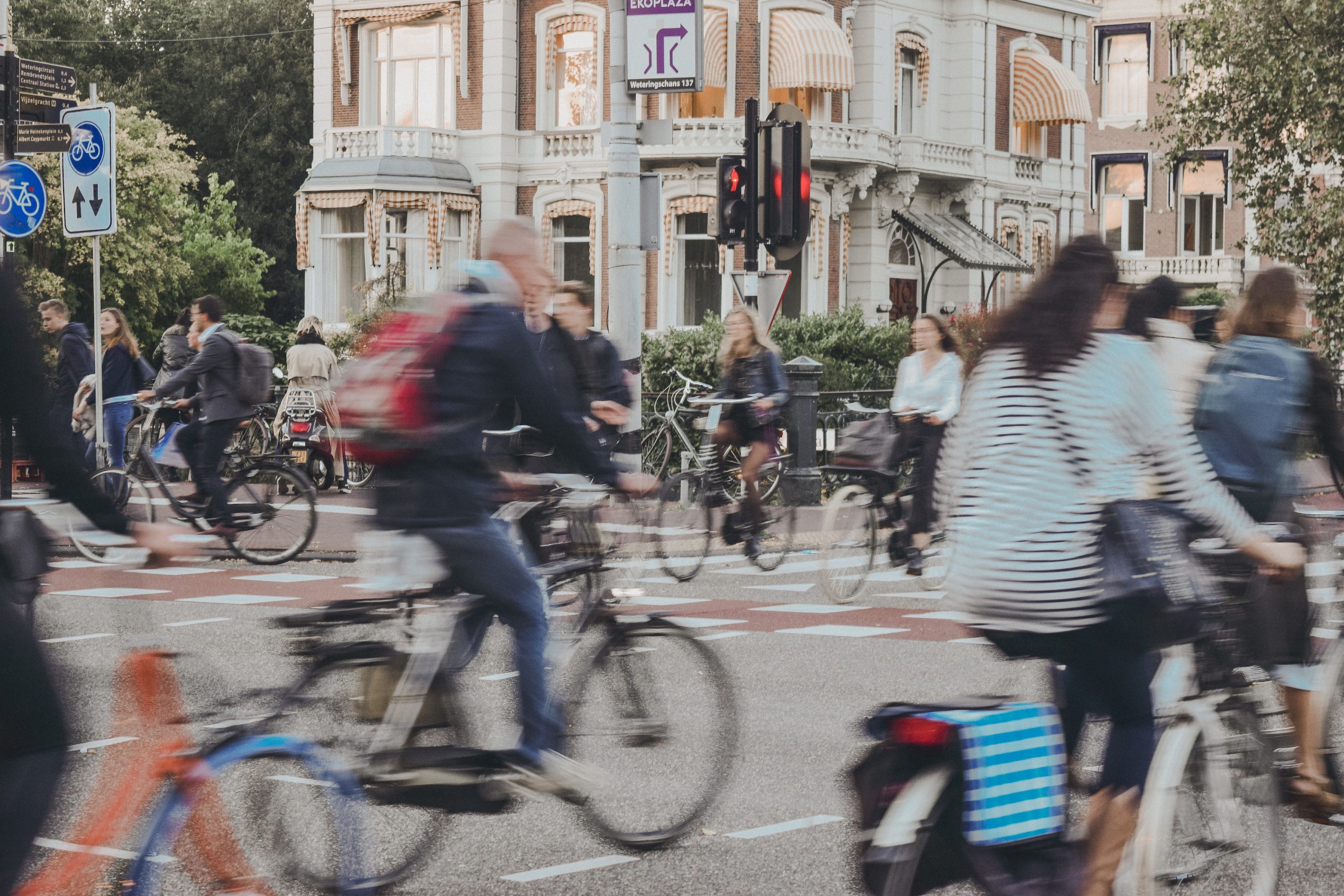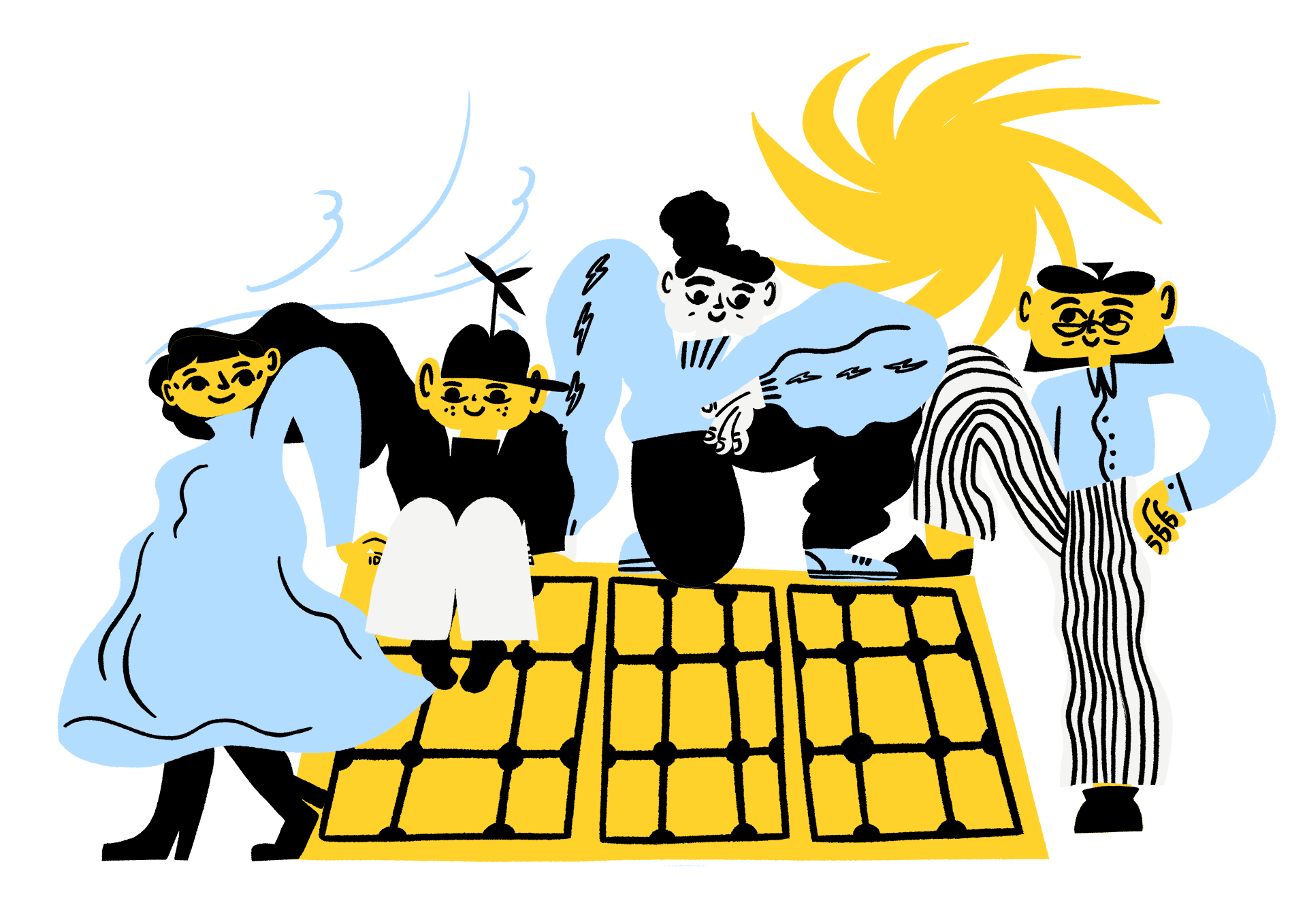Most Dutch households currently use natural gas to, for example, heat their homes. The gas has been mainly produced in the Groningen gas field, in the northeastern part of the Netherlands. However, the exploitation of Groningen has caused increasing earthquakes and damage to the city and nearby areas since the late 1980s. Because of this, the Netherlands has decided that all its neighbourhoods will become natural gas-free by 2050. The case study examines the transition towards natural gas-free homes in the Netherlands.
Residents are replacing natural gas with more sustainable options
The transition from natural gas to more sustainable solutions requires neighbourhood residents to be willing to make investments and renovate their homes. In the Netherlands, municipalities have a leading role in making neighbourhoods, districts and communities gas-free. In the inter-administrative Natural Gas-Free Neighbourhoods program (Programma Aardgasvrije Wijken, PAW), the Ministry of the Interior and Kingdom Relations, the Ministry of Economic Affairs and Climate Change, the Interprovincial Consultation, the Association of Water Boards and the Association of Netherlands Municipalities are working together to provide municipalities and parties involved with the best possible support in the natural gas-free task.
In the coming years, together with municipalities, the Dutch government plans to make about 100 existing neighbourhoods natural gas-free. We will study Dutch neighbourhoods, to see what factors and conditions encourage their residents to replace natural gas with sustainable solutions, such as individual electrical heating pumps, collective heat networks, green gas and/or hydrogen.
We studied the emergence of energy citizenship in the Netherlands
The transition towards natural gas-free homes has received some media attention in the Netherlands. According to a study in 2020, more than half of the Dutch population was (very) positive about the government’s intent to switch from natural gas to sustainable energy.
In the case study, we studied the barriers and drivers of the emergence of energy citizenship within Dutch neighbourhoods by conducting interviews and questionnaires with a representative sample of citizens of the Netherlands. We hoped to to see residents advocating for natural gas-free options and leading the transition towards more sustainable solutions. The case study was led by TNO.
Our findings and conclusions
Our research highlights the crucial roles of different actors in the transition to natural gas-free living:
- The Dutch government acts as the central coordinator.
- Municipalities bear primary responsibility for guiding homeowners in the transition.
- Local energy initiatives bridge the gap between municipalities and homeowners.
- Suppliers provide essential equipment, installation services, and guidance on new solutions.
- Homeowners are the principal agents tasked with replacing natural gas in their households with alternative solutions, making them highly reliant on and influenced by the other actors involved in the Dutch transition to natural gas-free living.
Motivations for energy citizenship vary among these actors: local energy initiatives are intrinsically driven, while top-down regulations and policies influence the Dutch government, municipalities, and homeowners. Despite municipalities’ primary role, homeowners must implement alternative solutions. Both homeowners and municipalities depend on external factors such as funding and technological installations by suppliers, which can lead to friction and reactance, potentially hindering progress toward the shared goal of achieving natural gas-free living by 2050.
Homeowners often express mistrust toward Dutch government policymakers and municipalities. Unlike other actors, homeowners frequently lack knowledge on metering, costs, and the transition’s consequences for their households. Furthermore, while municipalities and the Dutch government encourage homeowners to invest independently, many homeowners lack the means or believe funding should come from higher authorities, intensifying friction and acting as a barrier to their engagement.
Our findings also reveal disparities in expectations between local energy initiatives and municipalities, and between municipalities and suppliers. Local energy initiatives expect close collaboration and substantial homeowner support from municipalities, but municipalities face resource constraints and prefer local energy initiatives as the homeowner’s primary contact. Similarly, municipalities seek technological solutions and knowledge exchange from suppliers, but suppliers often struggle to prioritize knowledge sharing.
Implications on policy-making:
- Bottom-Up Approaches: Emphasize bottom-up approaches, fostering collaboration among multiple actor types through co-creation sessions. Overcoming trust issues and tailoring plans to local needs are essential.
- Information Accessibility: Provide homeowners with more comprehensive information about technical solutions, consequences, and tailored support. Engage them actively in sustainability plans to bridge the current gap.
- Simplified Financial Support: Simplify the complex financial support system to enhance understanding and accessibility for both municipalities and homeowners.
- Increased Municipal Capacity: Invest in expanding municipal capacity to better support local initiatives and individual homeowners in their transition efforts.
- Technical Expertise: Encourage suppliers to not only provide technological solutions but also share knowledge and information about available alternatives with municipalities and homeowners. Invest in technical jobs and training to increase the availability of technical suppliers.

